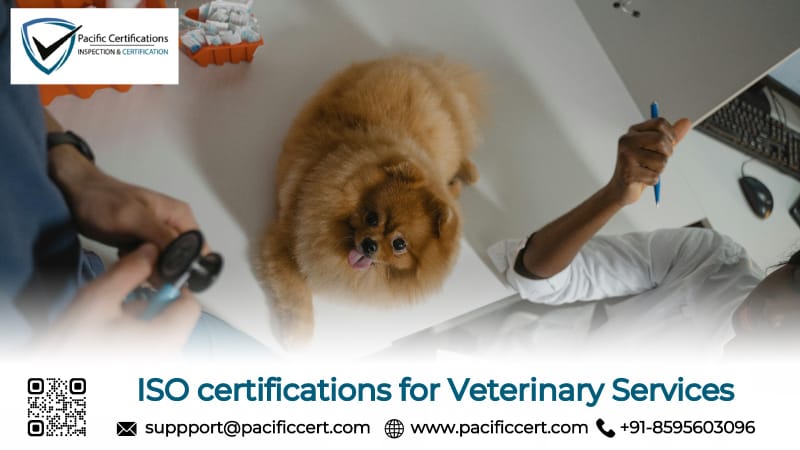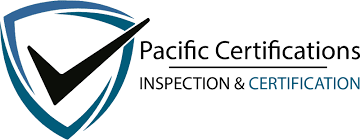ISO Certifications for Veterinary Services, Requirements and Benefits

Introduction
Veterinary services operate within complex healthcare environments where small animal clinics, livestock veterinarians, diagnostic laboratories, and animal hospitals must manage clinical procedures, control biosafety risks, and maintain stringent quality standards while ensuring animal welfare and protecting public health. Businesses face operational challenges including exposure to zoonotic pathogens transmissible between animals and humans, managing biological waste streams containing infectious materials, maintaining diagnostic accuracy across laboratory testing, and safeguarding sensitive client and patient data in digital health records systems. Biosafety and biosecurity concerns intensify as veterinary personnel handle potentially hazardous biological agents, with studies documenting unsafe laboratory practices and insufficient staff awareness regarding pathogen exposure risks.
ISO certifications provide veterinary service providers with systematic frameworks to standardize clinical protocols, implement biosafety management systems, protect information security, and demonstrate professional competence. Regulatory bodies and animal welfare organizations increasingly scrutinize veterinary standards, while pet insurance companies and institutional clients require documented quality management systems as service provider qualifications. ISO standards enable veterinary practices to address these requirements through auditable procedures, measurable safety indicators, and continuous improvement mechanisms that enhance both animal care quality and occupational safety
Veterinary services are about more than animal treatment—they influence public health and community well-being. ISO certifications bring structure and accountability to this essential work.
Quick Summary
ISO certifications provide veterinary services with internationally recognized frameworks to manage quality through ISO 9001, biosafety through ISO 45001, laboratory competence through ISO/IEC 17025, food safety through ISO 22000, information security through ISO 27001, and environmental responsibility through ISO 14001. These standards address the veterinary industry's critical requirements for zoonotic disease control, diagnostic accuracy, biological waste management, and occupational health protection while supporting compliance with animal health regulations.
For more information on how we can assist your veterinary business with ISO certifications, contact us at [email protected].
Applicable ISO Standards for Veterinary Services
Below are the most relevant ISO standards applicable to small animal clinics, livestock veterinary practices, diagnostic laboratories, and animal hospitals:
ISO 9001:2015 - Quality Management Systems
ISO 9001 standard enables veterinary practices to establish documented procedures controlling patient intake protocols, diagnostic processes, treatment procedures, surgical protocols, and follow-up care ensuring consistent service quality and positive clinical outcomes. Implementation addresses common quality failures including diagnostic errors, treatment inconsistencies, medication administration mistakes, and documentation gaps that compromise animal welfare and professional liability.
ISO 22000: Food Safety Management System (FSMS)
Veterinary services involved in food animal production, animal feed safety inspection, and food chain surveillance require systematic approaches to prevent foodborne hazards and ensure animal products entering human consumption meet safety standards. This standard provides comprehensive frameworks for hazard analysis, critical control points, prerequisite programs, and traceability that protect public health through safe food production systems
ISO 14001:2015 - Environmental Management Systems
Veterinary operations generate biological waste containing infectious materials, pharmaceutical waste from expired medications, sharps requiring special disposal, chemical waste from laboratory reagents, and radiation sources from diagnostic equipment. This standard helps veterinary practices implement documented controls for waste segregation, autoclave sterilization, chemical disposal, and environmental monitoring that ensure regulatory compliance and community safety.
ISO 45001:2018 - Occupational Health and Safety Management Systems
Veterinary operations involve significant biosafety risks including exposure to zoonotic pathogens such as rabies and leptospirosis, animal handling injuries from bites and scratches, chemical hazards from anesthetic agents and disinfectants, radiation exposure from diagnostic imaging, and sharps injuries during procedures. This standard establishes frameworks for zoonotic disease risk assessment, personal protective equipment protocols, biological containment controls, vaccination programs for personnel, and incident management that protect veterinary workers from occupational hazards.
ISO 17025:2017 - General Requirements for the Competence of Testing and Calibration Laboratories
Veterinary diagnostic laboratories conducting pathology testing, microbiology cultures, serology assays, molecular diagnostics, and clinical chemistry require internationally recognized competence demonstration ensuring accurate and reliable test results. This standard establishes requirements for technical competence, method validation, measurement traceability, equipment calibration, and quality control procedures that enhance credibility of diagnostic data supporting treatment decisions.
Click here to find out more applicable standards to your industry
What are the requirements of ISO Certifications for Veterinary Services?
Achieving ISO certification involves meeting specific requirements that vary depending on the standard. Here are the key requirements for the most relevant ISO standards for veterinary services:
General requirements:
A clear definition of services, whether small animal practice, livestock care, laboratory testing, or public veterinary services.
Policies and guidelines covering patient care, biosecurity, staff safety, and responsible use of pharmaceuticals.
Risk assessments for zoonotic disease transmission, chemical hazards, and equipment-related injuries.
Written procedures for clinical operations, diagnostic testing, vaccination programs, and hygiene practices.
Training programs for veterinarians, technicians, and support staff to ensure that procedures are applied consistently.
Detailed records of patient care, test results, vaccinations, and treatments to provide traceability.
Regular monitoring of key indicators such as patient outcomes, client satisfaction, and safety incidents.
Internal audits and reviews to keep systems effective and up to date.
Specific requirements:
ISO 9001:2015 - Quality Management Systems Requirements
Establish a clear quality policy and set measurable quality objectives.
Maintain proper documentation and records of all processes and procedures.
Identify, document, and manage all key processes to ensure consistent service delivery.
Demonstrate a strong focus on customer satisfaction and feedback.
Implement a continuous improvement process to enhance overall performance.
Conduct regular internal audits to ensure compliance with the quality management system.
ISO 14001:2015 - Environmental Management Systems Requirements
Develop an environmental policy that reflects the organization's commitment to environmental management.
Identify and evaluate the environmental aspects and impacts of the company's activities.
Ensure compliance with all relevant environmental laws and regulations.
Set environmental objectives and targets and implement plans to achieve them.
Provide training to employees on environmental issues and the importance of the EMS.
Monitor and measure environmental performance regularly.
ISO 45001:2018 - Occupational Health and Safety Management Systems Requirements
Establish a clear occupational health and safety policy.
Identify workplace hazards and conduct risk assessments to manage OH&S risks.
Ensure compliance with all relevant health and safety regulations.
Set OH&S objectives and implement programs to achieve them.
Ensure that employees are competent and trained in OH&S matters.
Investigate incidents and nonconformities to prevent recurrence.
ISO 17025:2017 - General Requirements for the Competence of Testing and Calibration Laboratories
Implement a management system covering quality, technical, and administrative operations.
Demonstrate technical competence in laboratory testing and calibration activities.
Maintain appropriate equipment and facilities for accurate testing and calibration.
Validate testing and calibration methods to ensure reliability and accuracy.
Ensure that laboratory personnel are qualified and competent.
Maintain traceability of measurements to national or international standards.
Tip: Veterinary clinics and hospitals should begin with ISO 9001 to establish quality systems, since it covers everything from appointment handling to treatment documentation.
What are the benefits of ISO Certifications for Veterinary Services
The benefits of certification are both practical and strategic:
Veterinary services gain greater consistency, which improves both client confidence and patient care.
Staff are better protected through structured safety measures and training programs.
Compliance with public health and animal welfare regulations becomes easier to manage and prove.
Clinics and hospitals can build trust with pet owners and farmers, who know that international standards are being followed.
Veterinary labs and institutions can qualify for government contracts and collaborations that require certification.
Certifications such as ISO 22000 directly support safe food supply chains, reducing risks of contamination.
Documentation and audits provide clear evidence during inspections or licensing reviews.
The global veterinary services market valued at USD 110.8 billion in 2023 projects growth to USD 139.2 billion by 2027 at a compound annual growth rate of 7.3%, driven by rising pet ownership for companionship, increasing disposable incomes enabling premium pet services, and growing prevalence of zoonotic diseases requiring veterinary intervention. Regional analysis shows North America leading market share while Asia-Pacific demonstrates fastest growth from expanding middle-class populations, increasing pet adoption rates, and improving veterinary infrastructure across developing economies.
Industry outlook indicates accelerating digital transformation through telemedicine consultations and remote monitoring technologies, expansion of specialized veterinary services including oncology and cardiology, growing emphasis on preventive care and wellness programs, and increasing integration of advanced diagnostics including genetic testing and molecular diagnostics. Primary growth drivers include rising pet humanization trends elevating animal healthcare expectations, increasing prevalence of chronic diseases in aging pet populations, expanding pet insurance coverage improving service affordability, and strengthening food safety regulations requiring veterinary oversight of animal production systems.
How Pacific Certifications can help?
Pacific Certifications, accredited by ABIS, acts as an independent certification body for veterinary service businesses by conducting impartial audits against applicable ISO standards. Our role is to objectively assess whether documented management systems and clinical protocols, biosafety procedures, laboratory operations, and information security controls conform to international ISO requirements, based strictly on verifiable evidence and operational records.
We support veterinary service providers through:
Independent certification audits conducted in accordance with ISO/IEC 17021 for quality, biosafety, laboratory, food safety, environmental, and information security management systems
Practical assessment of actual veterinary operations, clinical procedures, diagnostic laboratory practices, biosafety containment measures, and facility safety controls
Clear audit reporting reflecting conformity status and certification decisions based on documented evidence
Internationally recognized ISO certification upon successful compliance demonstration enhancing professional credibility and client trust
Surveillance and recertification audits to maintain certification validity and support continuous improvement initiatives
Contact us
If you need support with ISO certification for your veterinary business, contact us at [email protected] or +91-8595603096..
Author: Sony

